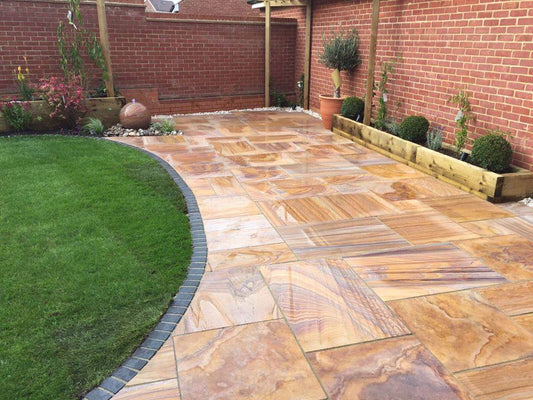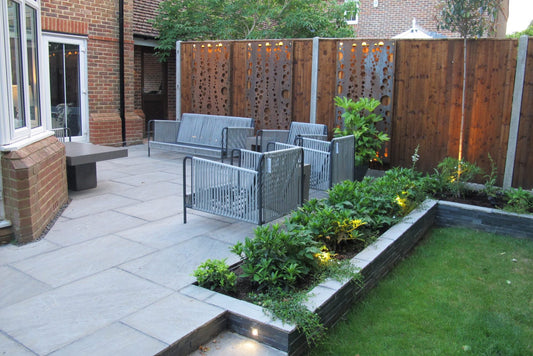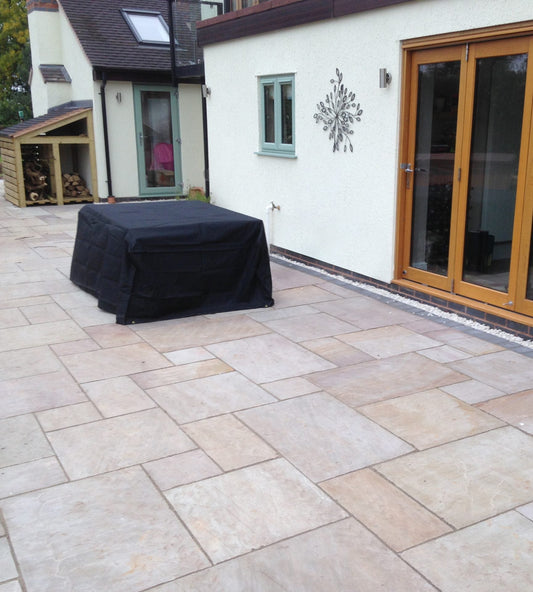Choosing the best paving for your patio, driveway, or garden path can be a daunting task with so many options available. At Paving Shopper, we taken time understand the importance of selecting the right paving material to suit your style, budget, and needs. In this write up, we'll explore the various types of different paving materials, and factors to consider when making your choices, including our top picks for the best paving options.
Factors to Consider When Choosing Paving
Before diving into the different types of paving materials, it's essential to consider several key factors that will influence your decision:
Purpose/Application: Consider whether you're paving a patio, driveway, or garden path, as each application may have different requirements for durability and aesthetics.
Style/Aesthetics: Your paving choice should complement your home's architectural style and exterior finishes. Consider whether a traditional or contemporary look is more suitable.
Budget: Paving materials vary in price, so it's important to establish your budget before making a decision. Keep in mind that while some options may have a higher upfront cost, they can offer better value in the long run due to their durability and low maintenance requirements.
Durability and Maintenance: Consider the level of durability and maintenance required for each paving material. Some options may require regular sealing or treatments to maintain their appearance and protect against stains and weather damage.Types of Paving Materials
Natural Stone Paving
Natural stone paving offers a timeless beauty and is available in a variety of options, each with its own unique characteristics:
Sandstone: Known for its natural color variations and texture, sandstone is a popular choice for patios and garden paths. It's available in a range of colors, from buff and grey to
brown and red.
Limestone: Prized for its consistent coloring and smooth texture, limestone paving creates a sophisticated look. It's available in shades of grey, blue, and
black.
Slate: With its distinctive cleft surface and rich, dark colors, slate paving adds a touch of drama to any outdoor space. It's naturally slip-resistant, making it an excellent choice for areas prone to moisture.
Granite: The hardest of all-natural stone options, granite paving offers exceptional durability and a sleek, contemporary appearance. It's available in various shades of grey and can be finished with a flamed texture for added slip resistance.
Concrete Paving
Concrete paving is a versatile and cost-effective option that can mimic the look of natural stone. It's available in a wide range of colors, patterns, and finishes. While it may not have the same natural beauty as stone, concrete paving is durable, low-maintenance, and easy to install.
Porcelain Paving
Porcelain paving is a relatively new option that offers the beauty of natural stone or wood with the added benefits of durability and low maintenance.
Porcelain pavers are highly resistant to stains, scratches, and fading, making them an ideal choice for high-traffic areas. They're available in a wide range of styles, from stone-effect to wood-effect, and can create a seamless transition between indoor and outdoor spaces.
Choosing the Best Paving for Your Style
When selecting paving materials, it's important to consider your home's architectural style and exterior finishes:
Traditional Homes: For traditional homes, natural stone paving in classic colors like buff and grey can create a timeless look. Consider options like sandstone or limestone with a
riven or tumbled finish for added character.
Contemporary Homes: For modern homes, sleek and minimalistic paving options like granite or porcelain can complement the clean lines and contemporary aesthetics. Look for large-format pavers in shades of grey or black for a sophisticated appearance.
Matching to Exterior: When choosing paving colors, consider your home's exterior finishes, such as brickwork, render, or cladding. Select shades that complement or contrast with these elements to create a cohesive look.
Top Paving Picks
Based on our experience and customer feedback, here are our top paving picks for various categories:
Best Overall Paving: Indian Sandstone paving offers the perfect balance of natural beauty, durability, and versatility, making it our top choice for most applications.
Best Value Paving: Concrete paving is an excellent choice for those on a budget, offering durability and a range of design options at a lower cost than natural stone.
Most Durable Paving: Porcelain paving is the most durable option, withstanding heavy foot traffic, extreme weather conditions, and resisting
stains, cracks and scratches.
Best Contemporary Look: Granite paving in a flamed finish offers a sleek, modern appearance that complements contemporary architecture.
Best Traditional Style: Limestone paving in a tumbled or aged finish creates a classic, timeless look that suits traditional homes and gardens.
Installation and Maintenance Tips
To ensure your paving looks its best and lasts for years to come, consider the following installation and maintenance tips:
Proper Subbase Preparation: A well-prepared subbase is crucial for preventing settling, shifting, and drainage issues. Ensure your paving is installed on a stable, compact base of crushed stone or concrete.
Regular Cleaning: Sweep your paving regularly to remove dirt and debris. Use a pressure washer o or hose to clean stubborn stains, but be cautious with high-pressure settings on softer stones like
sandstone which may be best washed without a pressure washer.
Sealing: Some natural stone paving, particularly limestone and sandstone, may benefit from sealing to protect against stains and enhance color. Follow the manufacturer's recommendations for sealing frequency and products.
Repointing: Over time, the joints between pavers may deteriorate. Repoint as needed to maintain the integrity and appearance of your paving.
What is the most durable paving material?
Porcelain paving is the most durable option, followed closely by granite. These materials are highly resistant to scratches, stains, and weather damage.
Is natural stone paving more expensive than concrete?
Yes, natural stone paving is generally more expensive than concrete. However, it offers a unique beauty and character that concrete may not be able to replicate.
Can I install paving myself, or should I hire a professional?
While it's possible to install paving yourself, it's recommended to hire a professional for the best results. Proper
subbase preparation and installation techniques are crucial for ensuring the longevity and performance of your paving.
How often should I seal my natural stone paving?
The frequency of sealing depends on the specific stone and the level of traffic and exposure to the elements. As a general rule, it's recommended to seal most natural stone paving every 1-3 years.
Choosing the best paving for your outdoor space involves considering your style preferences, budget, and practical needs. By understanding the different paving materials available and their unique characteristics, you can make an informed decision that will enhance the beauty and functionality of your patio, driveway, or garden path.
At Paving Shopper, we offer a wide range of high-quality paving options to suit every style and budget. Browse our collection today and take the first step toward creating your dream outdoor space. Don't forget to order samples to see and feel the paving materials in person before making your final decision.
h3>What are the best paving materials for patios and outdoor spaces?
The best paving materials for patios and outdoor spaces include natural stone options like
sandstone, limestone, slate, and granite, as well as man-made options such as concrete and porcelain. Each material has its own unique characteristics, benefits, and drawbacks. To learn more about the
pros and cons of sandstone paving and
pros and cons of porcelain paving, check out our detailed blog articles.
How do I choose the right paving style for my home?
When selecting the best paving style for your home, consider factors such as your home's architectural style, exterior finishes, and your personal preferences. Traditional homes often look best with natural stone paving in classic colors, while contemporary homes may benefit from sleek, minimalistic options like granite or porcelain. Our blog articles on
paving ideas for the front of your house and
paving ideas for small gardens can provide you with further inspiration and guidance.
What is the most durable paving material?
Porcelain paving is considered the most durable option, closely followed by granite. These materials are highly resistant to scratches, stains, and weather damage. To learn more about the durability and maintenance of porcelain paving, read our article on the
pros and cons of porcelain paving.
Can I install paving myself, or should I hire a professional?
While it is possible to install paving yourself, it is often recommended to hire a professional for the best results. Proper subbase preparation and installation techniques are crucial for ensuring the longevity and performance of your paving. Our blog article on
sub-bases for patios provides valuable insights into the necessary steps for a successful paving installation.
How do I maintain and clean my paving?
Regular maintenance and cleaning are essential for keeping your paving looking its best. Sweep your paving regularly to remove dirt and debris, and use a pressure washer or hose to clean stubborn stains. However, be cautious when using high-pressure settings on softer stones like sandstone. Our blog articles on
pressure washing porcelain paving and
pressure washing Indian sandstone offer helpful tips and guidance for maintaining these specific materials.







